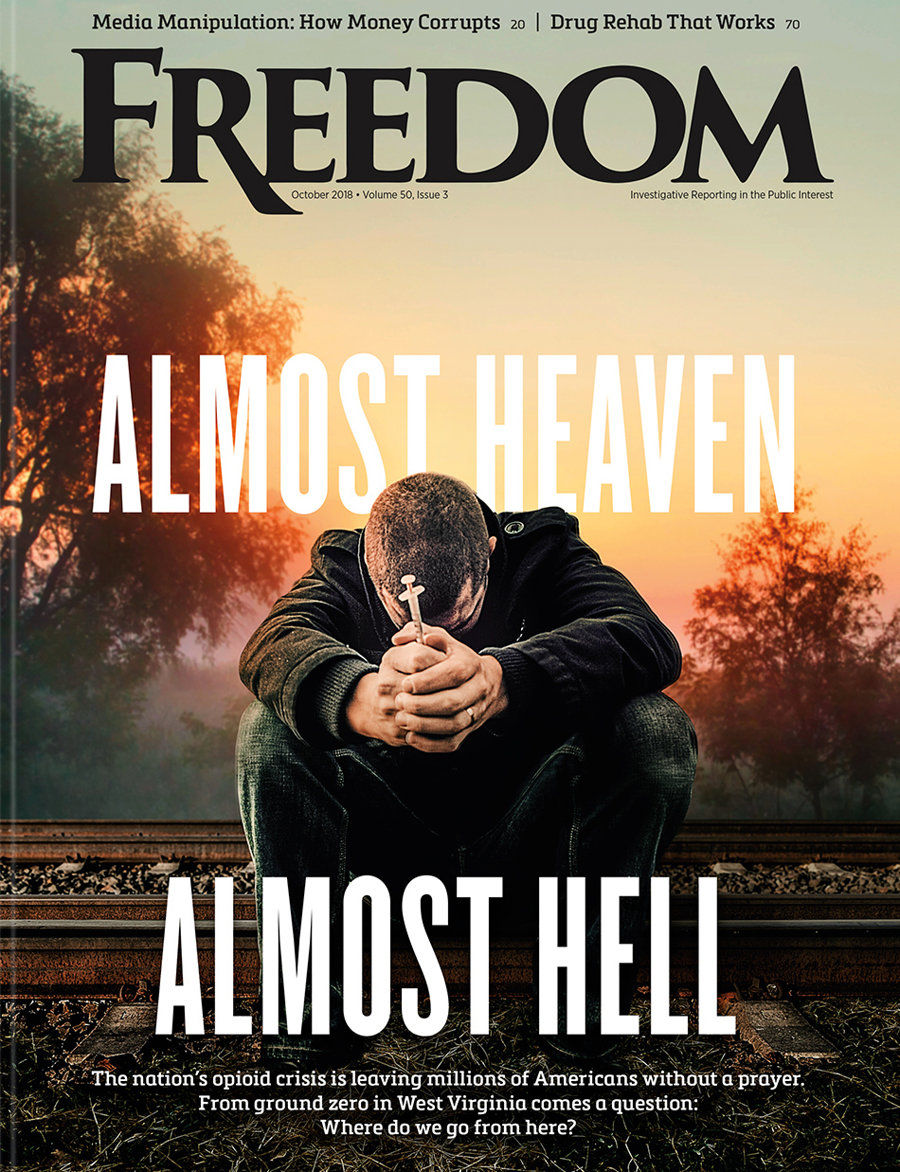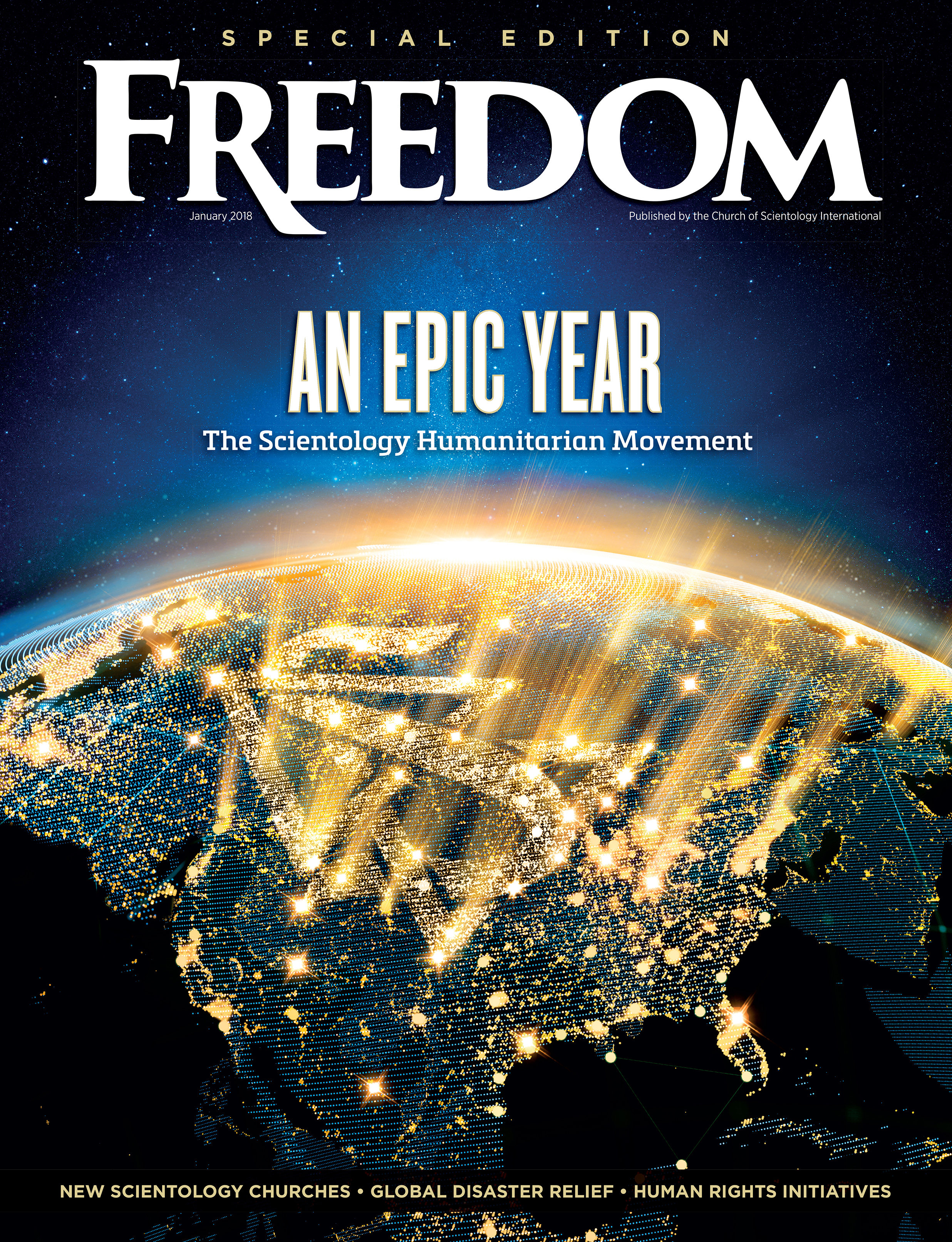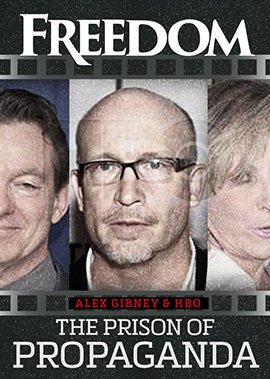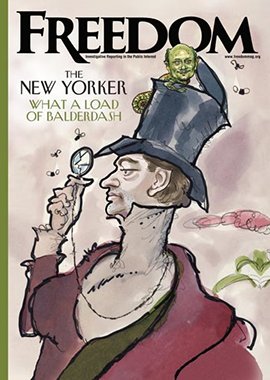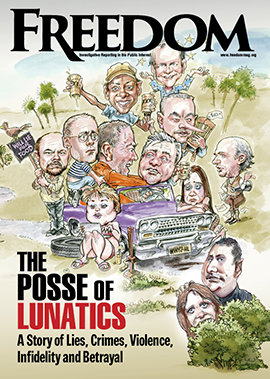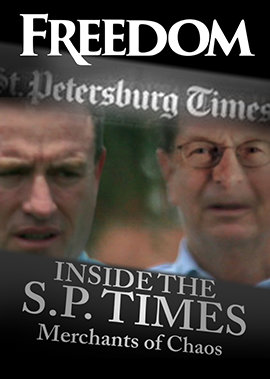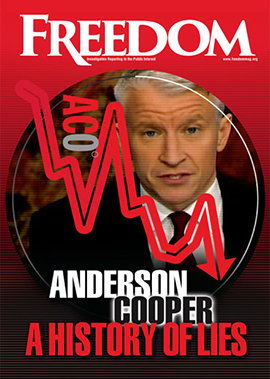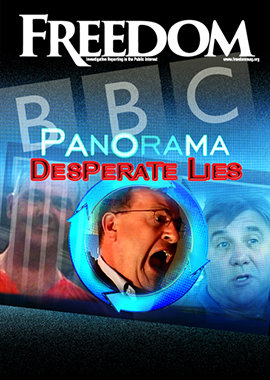That’s because this is Matt Robinson, the president of Criminon New Life DC, a secular nonprofit service delivering effective criminal reform and rehabilitation.
For over 20 years, Robinson’s efforts have brought about the rehabilitation of over 15,000 incarcerated and reentry individuals in Washington, DC.
“They’re no longer seeing themselves as victims and are now realizing their basic goodness and how they must be responsible to themselves.”
Criminon means “no crime.” The program centers around the discoveries of Scientology Founder and humanitarian L. Ron Hubbard, who wrote, “The reformation or reclamation of the criminal does not depend upon punishment ... but upon the re-establishment of the criminal’s self-respect.”
For Matt Robinson that is the goal: the restoration of self-respect. But in order to achieve that, the individual must first reconnect with the truth of who he is—that he is basically good.
“They’ve been told that they’re a murderer or they’re a thief,” Matt explains. “They’ve been told they’re not trustworthy. They’ve been told, ‘You are a liability and a threat to this family.’ They’ve been told, ‘You should be locked up for life and the key thrown away.’ They’ve been told, ‘You are not deserving of being loved.’ They’ve been told this, and they come in to my Criminon class thinking that’s who they are.”

Matt bypasses those labels and gives them the space to find out who they really are—inherently good, endowed with dignity and potential. “They have to contact that person within themselves,” he emphasizes. “Our class is a workspace where they go on that journey to find that. You don’t tell them that’s who they are. They discover it.”
Matt sees the progression toward that discovery in their success stories. “At first, the successes complain about their bad lawyer, or how the judge was unfair, or their momma was never home, so their dad taught them how to deal drugs. But as they progress in the course, the success stories shift. They’re no longer seeing themselves as victims and are now realizing their basic goodness and how they must be responsible to themselves: ‘I’m gonna support my mom and dad. I’m going to make it up to people. I want to contribute.’”
The heart and soul of the Criminon program is The Way to Happiness: A Common Sense Guide to Better Living, a nonreligious moral code by L. Ron Hubbard.
“The Way to Happiness is a journey,” he says. “It gently walks one upward, making one more and more responsible on a widening scale. My students never knew there was anything outside of themselves. They don’t think of the other responsibilities they have in life. I can see every one of my students broadening out; they see the other side of what they were doing, and they go, ‘My God, I didn’t know what it was like to be trustworthy! I’ve never done this before!’ or ‘I just spent the whole day helping people, and I got such a rush!’ It is the most profound, visceral, emotional experience. They feel what it is to be virtuous.”
Matt Robinson can relate to the men, women and youth he deals with because, like many of them, he was also dealt a bad hand in life.
Raised in the segregated South, with no running water or electricity in his home, going to a makeshift school with all the grades taught in one room by the same teacher, Matt was already beginning to make bad choices in his life. But then, in high school, he met the man who would change his life—a man who, as Matt puts it, “knew we had the potential to be great.”
These offenders will be returning to our streets. They’ll be our neighbors, our classmates, our grocery clerks.
Each day, school ended at 2:30 p.m. “At 3:00, we would come back to class. Mr. Parker conducted a math class from 3:00 until 8:30 at night. That’s five days a week and tons of homework over the weekend. At 8:30 at night, there was no school bus, so he would pack us into his car and drive all over the county, dropping us off at our homes. That’s dedication. He wasn’t paid. He didn’t have to do this. He said, ‘I’m gonna teach you more than algebra, more than trigonometry. You’re gonna be a master of advanced calculus. You’ll be at least well into the junior year of college when we finish.’
“And we did it. And he personally got us each into college. I majored in math. Then, I went to graduate school and majored in quantum mechanics and nuclear physics. I got an excellent job with a major IT corporation and traveled around the world. I lived in Norway, Paris, London and Canada, solving complex problems for groups like NASA. So you’re talking about a guy who was raised in a neighborhood with potholes and dirt roads—with the Ku Klux Klan throwing fire bombs at him in the middle of the night—becoming someone with postgraduate degrees who did work at Harvard University.”

Now, just like Mr. Parker, Matt Robinson tosses a lifeline daily to people who society has given up on and who have also given up on themselves.
Matt delivers the Criminon courses in person. “I want to see you,” he says. “I wanna see the whites of your eyes.”
But how many people can one person in one classroom reach in a week, a month, a year? Is it enough for DC’s burgeoning criminal population? And how about the rest of the US where other Criminons operate?
Over the last four decades, the prison population has quintupled.
Never before have so many human beings been caged in fortress-like warehouses under continuous surveillance by armed guards. The cost of keeping so many under lock and key is so astronomical in man-hours and dollars that any idea of rehabilitation is simply off the table. Yet these offenders will be returning to our streets. They’ll be our neighbors, our classmates, our grocery clerks. Unless reformed, they will go on to commit another assault, robbery or worse—which happens at the rate of seven out of every 10 released.
The Criminon program has proven effective. Up to 80 percent of Criminon graduates never return to prison.
Matt is optimistic, and he wants us to be optimistic, too. He’s seeing changes, positive ones, in the way law enforcement has been going about its business.
“Police now are encouraged to build better relations with the community, to be partners, not antagonists,” he says. “That’s a big change.”
Matt is grateful for the positives that have been evolving through the years. He’s also grateful for the friends he’s made and networked with in the reentry and rehabilitation communities throughout the country and the world. “I’ve learned so much from them, and I’m happy to pass on what’s been successful for us, as well,” he says.
And with a broad smile, Matt’s off to another joyous day in prison.






